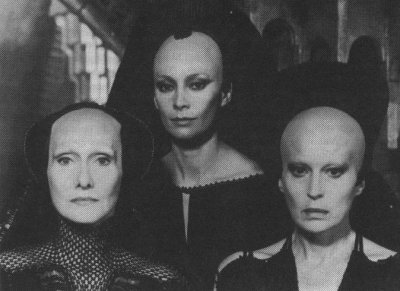 When you talk about social business, social collaboration, social learning, rapidly the question of informal learning come up. Informal learning is difficult to avoid, since 80% of learning in the company is informal in nature, as stated Jay Cross, author of Informal Learning. So does it mean, that we have nothing to do to try to improve it ? Here is my take through a quick bend by the famous Franck Herbert’s novel, Dune and his famous Bene Gesserit.
When you talk about social business, social collaboration, social learning, rapidly the question of informal learning come up. Informal learning is difficult to avoid, since 80% of learning in the company is informal in nature, as stated Jay Cross, author of Informal Learning. So does it mean, that we have nothing to do to try to improve it ? Here is my take through a quick bend by the famous Franck Herbert’s novel, Dune and his famous Bene Gesserit.
May be the first question is do we have to formalize it, seeing that it works pretty well. My point of views is yes. We can’t process everything, fortunatly, but organize few things can help sometimes even if it’s not official and more some good practices instead of a formal process. I will give an example that I know well : Consulting.
In a consulting firm, learning and transmission of knowledge is the core service provided by a firm. This peer to peer transmission is the guarantee that the firm retains the collective memory and expertise of all consultants spent by the firm (we find this idea in Dune with the Bene Gesserit’s other memory), despite an important turn-over for this profession. It becomes a reality in particular in the contribution of benchmarks that are related to the missions of various consultants which will be used for futur businesses.
Generally in the mission, there is a time dedicated to steering (especially if it is long). In this time of steering, it includes the debriefing with all the consultants. It is during this debriefing that each one brings his feedback and knowledge to others, so a peer to peer learning, made informally (this dedicated time is not really visible for the client). In an « unofficial way », there is a formalization of an informal learning. Unfortunatly, often no one takes time to do that and the sharing and transfer of knowledge is nonexistent and juniors do not really make progress. Similarly, as the steering time allows a control by the client, this time is also dedicated to fertilize, correct, improve, construct … productions of each consultant, but it is also a place of learning and sharing for the less experienced.
Without this unofficial formalization, there would be no transmission of knowledge. Worse, on the long term each one would take back existing deliverable without understand completely the meaning, impoverishing more and more the original thought and preventing any innovation and progress.
Moreover, when an project manager debrief individually each of its consultants, as its role is to assess the contribution (or non contribution) provided by the consultant, as he is also there to point the skills and knowledge the consultant was able to acquire during the mission. These are not still understand by the consultant, and this formalization through this interview of the end of mission is very important for the consultant, so that he can better capitalize on his experience and understand where he has capitalized on his experience.
In fact, even if it is not presented as learning, there are times and places for unofficial informal learning, the consultants « Water of Life« . In addition to the tools and methods that allow traditional KM, capitalize on the different products available, these are the times that make up this collective memory of consulting firms, the other memory of the Bene Gesserit.
In many company, not only consulting firm, learning moments exist. You just have to spot them and share them as good practices
